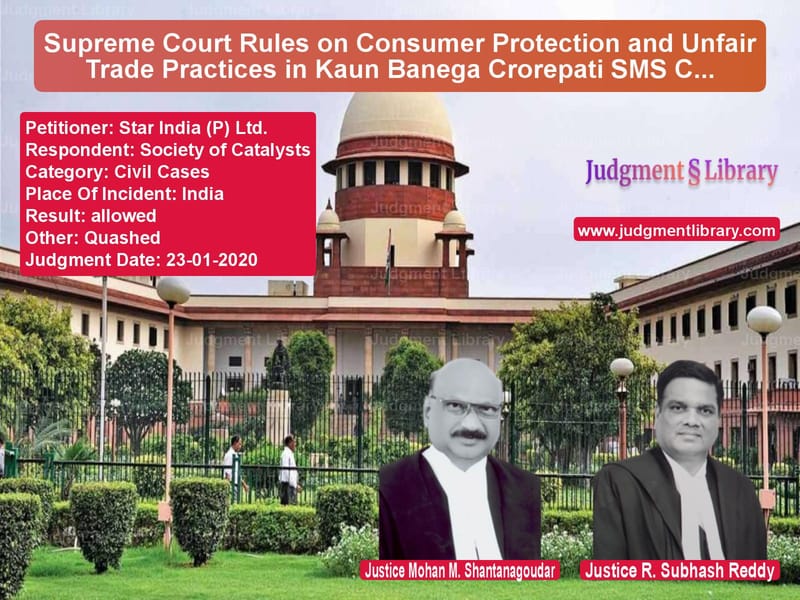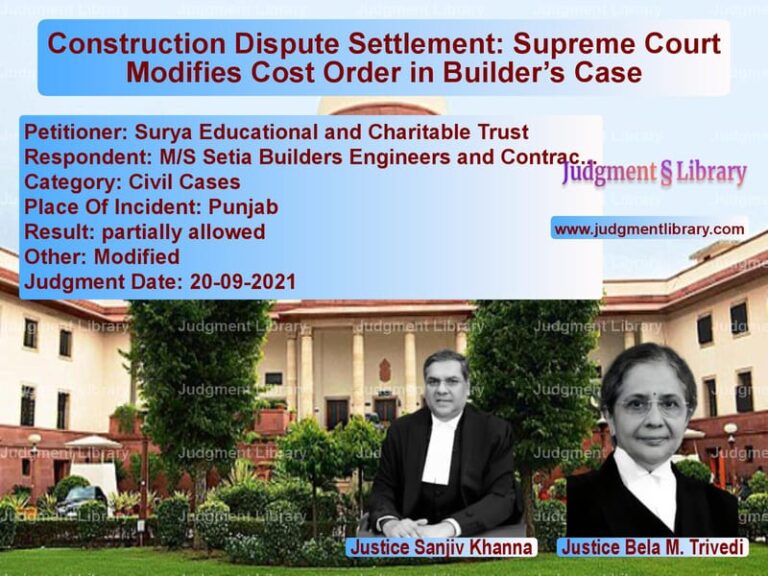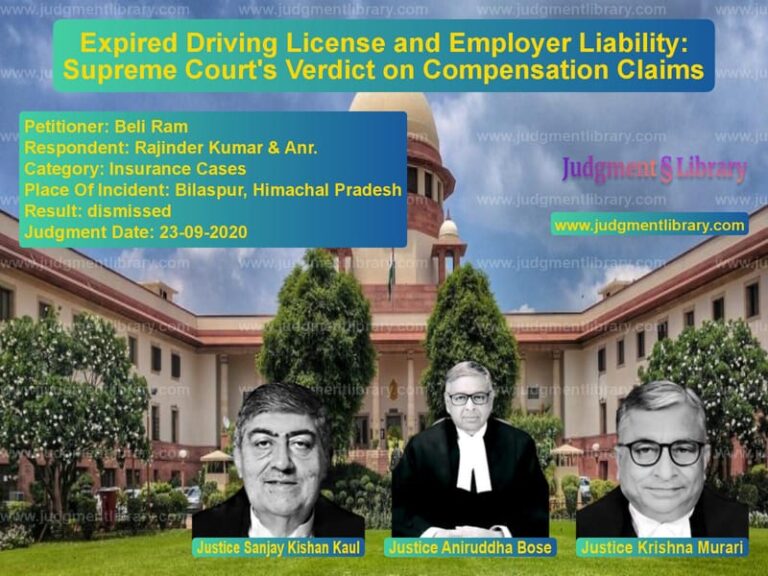Supreme Court Rules on Consumer Protection and Unfair Trade Practices in Kaun Banega Crorepati SMS Contest
The case of Star India (P) Ltd. vs. Society of Catalysts arose from a consumer complaint regarding the SMS-based contest ‘Har Seat Hot Seat’ (HSHS) held during the telecast of Kaun Banega Crorepati (KBC). The Supreme Court was called upon to decide whether the contest amounted to an unfair trade practice under the Consumer Protection Act, 1986.
Background of the Case
Between January 22, 2007, and April 19, 2007, Star India aired KBC with sponsorship from Bharti Airtel, among others. The program included a contest where viewers could participate by sending SMS responses to multiple-choice questions. The winner was chosen through a random draw and awarded Rs. 2 lakh per episode.
The controversy arose because while participation was advertised as free, viewers were charged Rs. 2.40 per SMS, higher than the usual rate. The complainant, Society of Catalysts, a consumer rights organization, alleged that:
- The contest was misrepresented as free, but the prize money was effectively financed through the SMS charges.
- The selection of winners by random draw made the contest akin to a lottery.
- Star India and Airtel profited disproportionately from the SMS revenue while misleading consumers.
National Consumer Commission’s Findings
The National Consumer Disputes Redressal Commission (NCDRC) ruled in favor of the complainant, holding that:
- The SMS charges amounted to an undisclosed fee, violating Section 2(1)(r)(3)(a) of the Consumer Protection Act.
- The contest structure, with simple questions and random winner selection, was promotional rather than skill-based.
- Viewers had been led to believe the contest was free, constituting an unfair trade practice.
- Star India and Airtel were jointly liable for punitive damages of Rs. 1 crore and litigation costs of Rs. 50,000.
Arguments by the Petitioner (Star India & Airtel)
Star India and Airtel challenged the NCDRC ruling, arguing that:
- The contest was advertised as free, with the SMS charge explicitly displayed.
- Airtel, as a telecom provider, was entitled to charge a premium for value-added services.
- The NCDRC erroneously relied on a newspaper report about revenue figures without corroboration.
- There was no evidence that the SMS revenue was used to fund the prize money.
Arguments by the Respondent (Society of Catalysts)
The consumer rights group defended the NCDRC ruling, asserting that:
- Participants were misled about the nature of the contest and associated costs.
- The increased SMS rates indirectly funded the contest, making the ‘free’ claim deceptive.
- The contest was structured to benefit Star India through higher viewership and advertising rates.
- Punitive damages were justified due to the scale of consumer participation.
Supreme Court Judgment
The Supreme Court analyzed whether the contest constituted an unfair trade practice and whether the NCDRC was correct in awarding punitive damages.
Key Observations:
- The Consumer Protection Act prohibits misleading claims about ‘free’ offers when costs are indirectly recovered.
- The contest terms were disclosed, but the promotional messaging was ambiguous.
- There was no direct evidence linking SMS revenue to prize payouts.
- Consumer participation was voluntary, and no coercion was involved.
The Court concluded:
“While the contest may have led to consumer misconceptions, the absence of coercion or direct financial loss undermines the claim of an unfair trade practice.”
Final Ruling:
- The NCDRC’s finding of an unfair trade practice was set aside.
- The Rs. 1 crore punitive damages award was quashed.
- No compensation was payable, as no actual loss was proven.
- The Court left open the broader question of consumer protection in telecom-related promotional activities.
Conclusion
This ruling clarified the standards for unfair trade practices in promotional contests. It reinforced that while transparency in consumer transactions is essential, punitive damages require evidence of actual harm. The decision serves as guidance for consumer protection cases involving telecom-based promotions.
Petitioner Name: Star India (P) Ltd..Respondent Name: Society of Catalysts.Judgment By: Justice Mohan M. Shantanagoudar, Justice R. Subhash Reddy.Place Of Incident: India.Judgment Date: 23-01-2020.
Don’t miss out on the full details! Download the complete judgment in PDF format below and gain valuable insights instantly!
Download Judgment: Star India (P) Ltd. vs Society of Catalysts Supreme Court of India Judgment Dated 23-01-2020.pdf
Direct Downlaod Judgment: Direct downlaod this Judgment
See all petitions in Consumer Rights
See all petitions in unfair trade practices
See all petitions in Judgment by Mohan M. Shantanagoudar
See all petitions in Judgment by R. Subhash Reddy
See all petitions in allowed
See all petitions in Quashed
See all petitions in supreme court of India judgments January 2020
See all petitions in 2020 judgments
See all posts in Civil Cases Category
See all allowed petitions in Civil Cases Category
See all Dismissed petitions in Civil Cases Category
See all partially allowed petitions in Civil Cases Category







